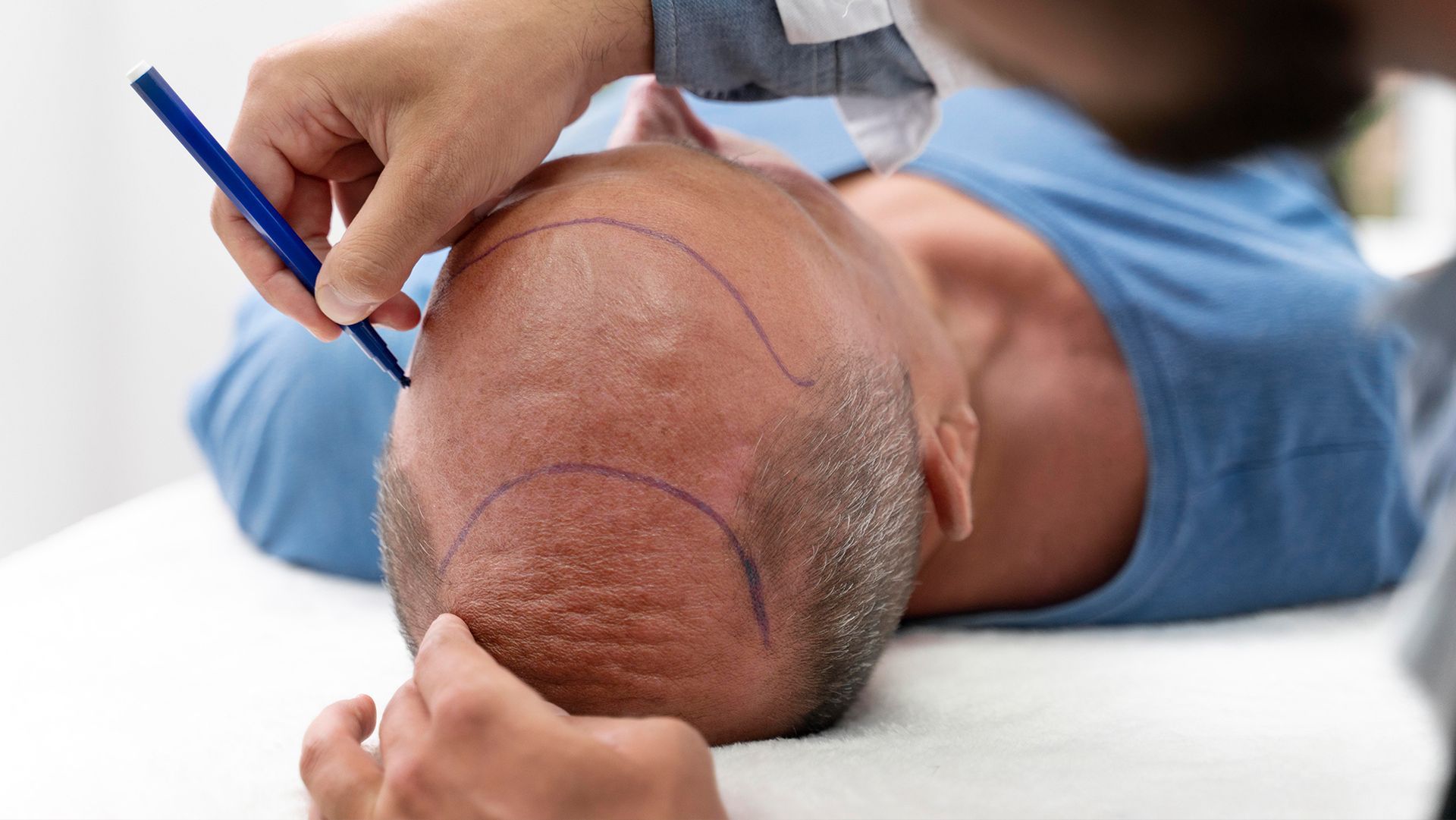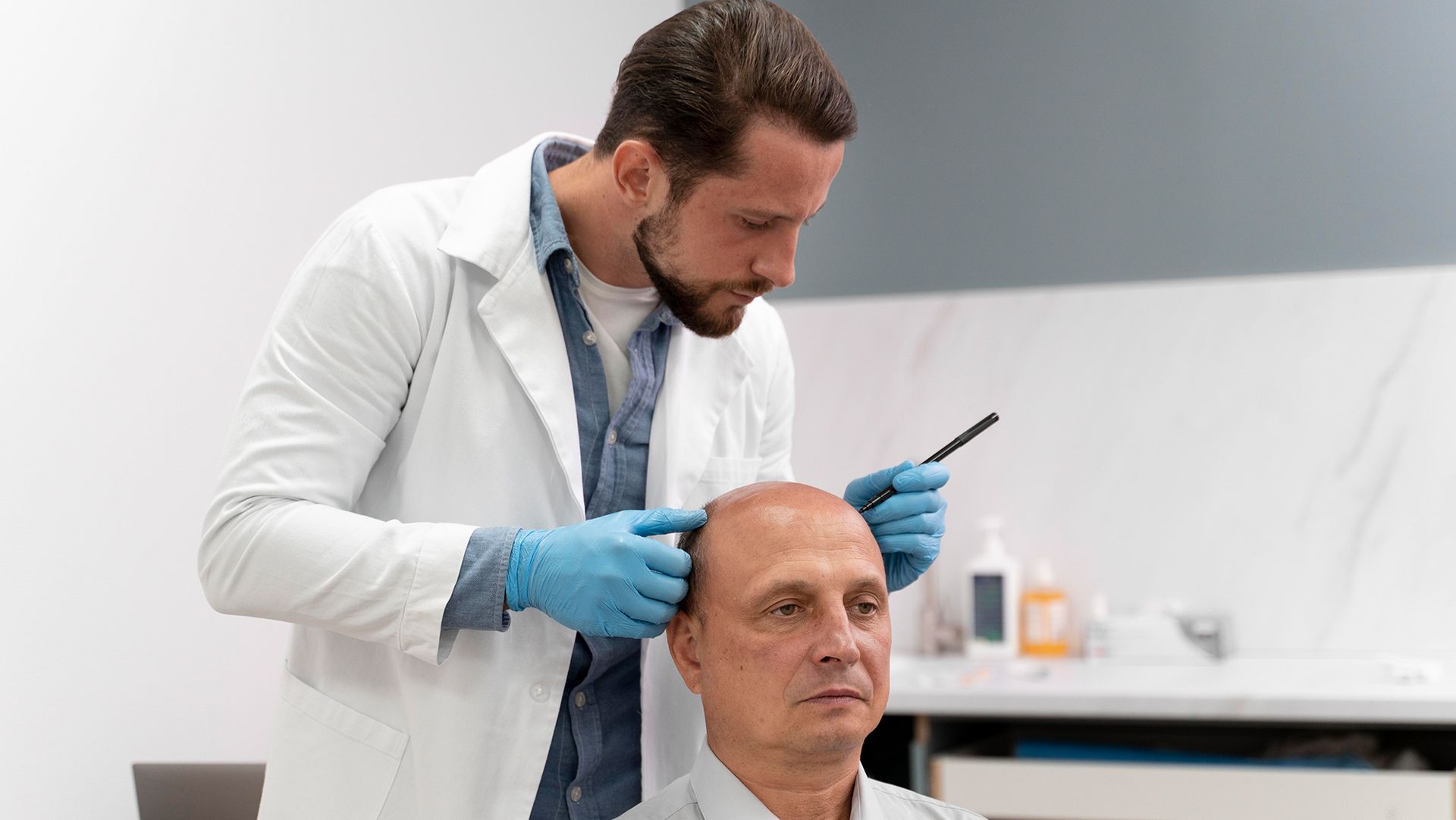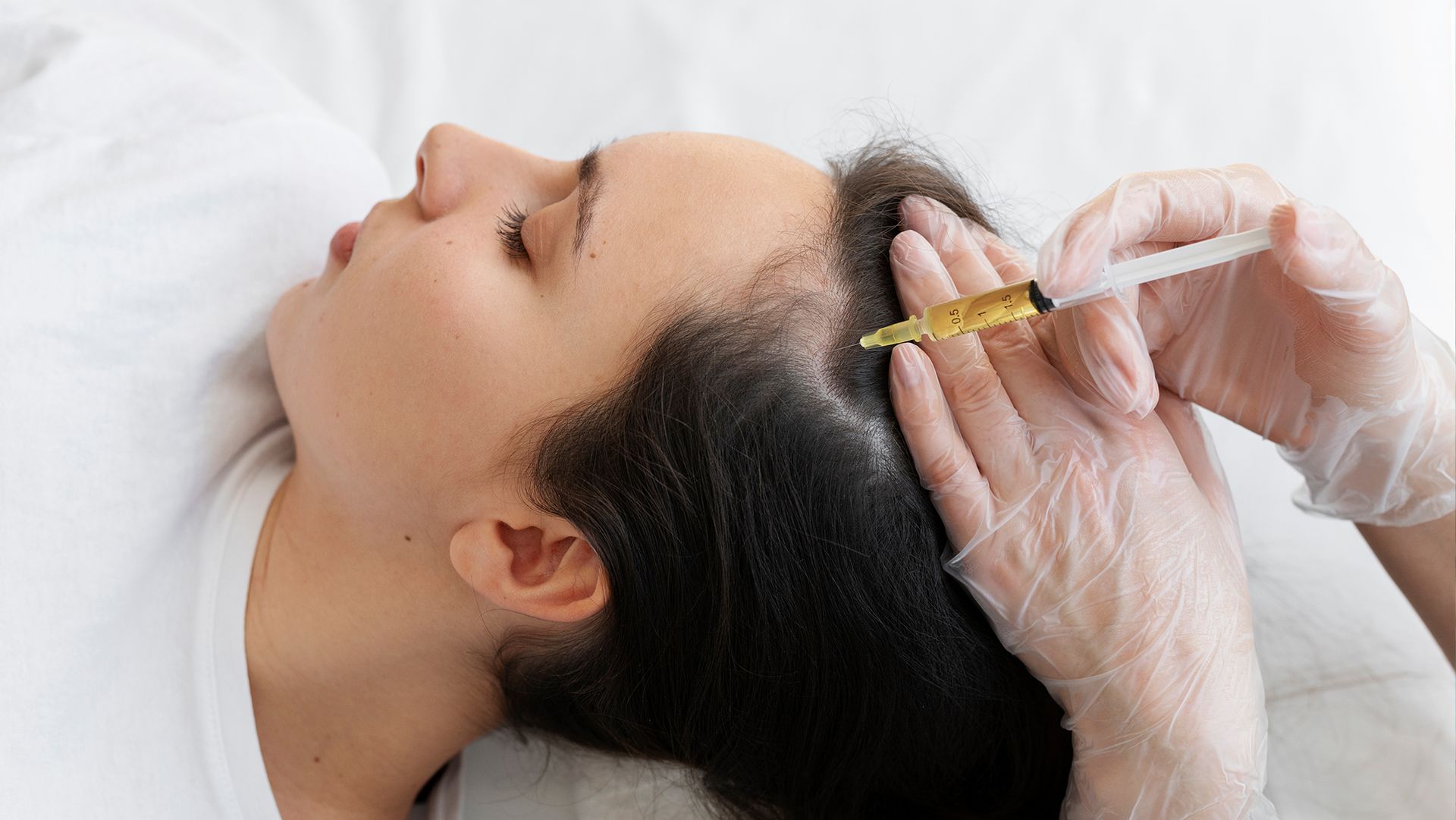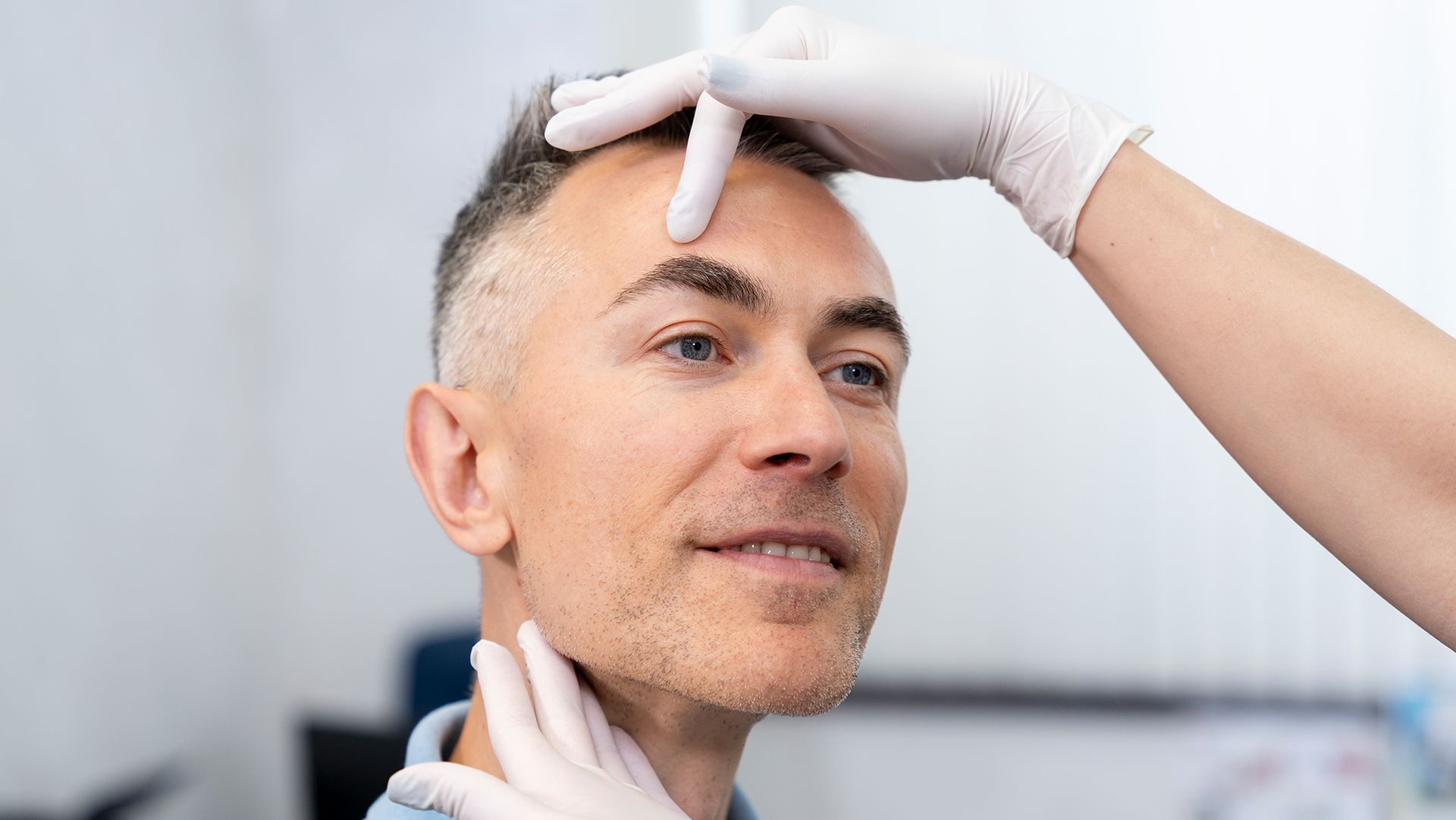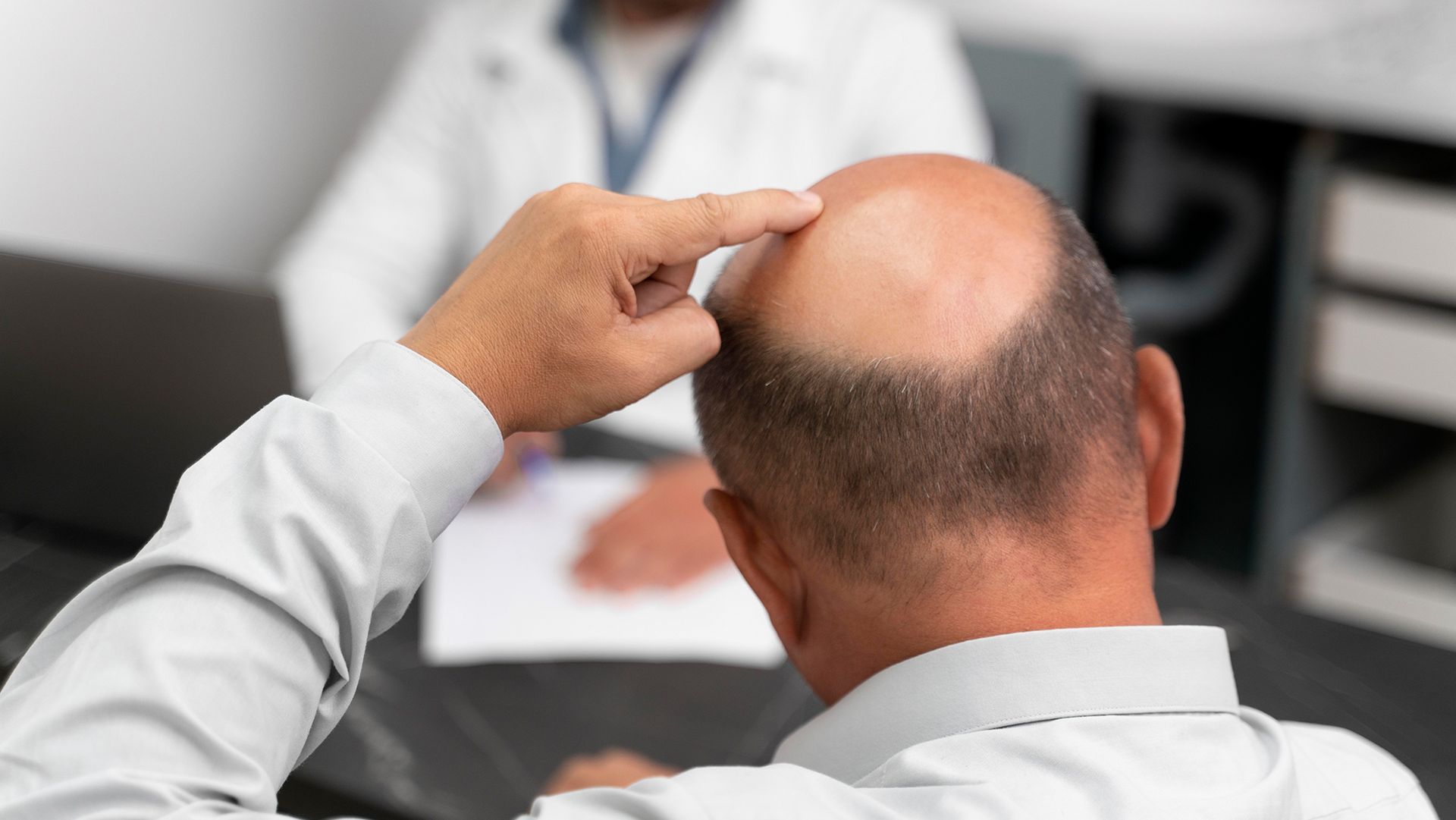An Open Letter from Dr. William Yates, MD FACS Unlicensed Hair Transplants: The Hidden Risks You Should Know
December 6, 2024

It’s a well-known fact that nearly 60 million Americans experience hair loss at some point in their lives. Among the many options for restoring the luster of one’s hair, hair transplantation is widely regarded as offering the most enduring results. Recent data from the International Society of Hair Restoration Surgery (ISHRS) shows a clear uptick in the number of hair transplants, with procedures increasing by 20% or more annually. This surge in demand has opened the floodgates for a multitude of less-than-qualified physicians and non-physicians who claim to be experts in the field.
Unlike traditional medicine, where doctors must graduate from an accredited medical school and undergo rigorous vetting by committees and other professionals to practice in hospitals or specialize in their fields, there are no comparable standards of care for hair transplants. This lack of regulation makes it difficult for patients to determine who is truly qualified to perform such procedures.
Although licensed healthcare providers are held to strict medical and ethical standards, the absence of oversight in hair transplant practices has led to alarming trends. Some physicians are completing weekend courses and immediately setting up fully operational clinics, with little to no hands-on experience. Hair transplant centers are also being opened by businesspeople with no medical expertise, who hire the cheapest available physicians or technicians to perform the procedures. To make matters worse, some clinics intentionally obfuscate the qualifications of their staff—such as individuals with doctorates in unrelated fields who claim to be medical doctors—and others employ foreign-trained doctors who are not licensed to practice in the U.S. These professionals often misrepresent their credentials, degrees, and skill sets.
I was recently made aware of a physician, Vinay Rawlani, who allegedly held a staff position at Northwestern University, a prestigious hospital in Chicago where I proudly attended medical school. Many patients who have visited my office mentioned that they had also consulted with him, and he claimed to be a staff member at Northwestern, with an office there.
Upon further investigation, I discovered that his medical license had been revoked in 2017 and only reinstated in 2020, which would render it impossible for him to be an expert in hair transplant surgery. Rawlani was also charged with felony theft of nearly $200,000 worth of equipment from the hospital. Although the stolen property was found in his home, Rawlani pleaded not guilty to the charges. This information is a matter of public record.
It is absurd that someone who has stolen from a hospital and profited from that theft is now masquerading as a faculty member at the very institution he victimized. I am shocked that Northwestern has allowed him to rent office space within the institution from which he stole. Rawlani’s deception has been so successful that he is now recognized as a medical director at other hair transplant clinics. I personally know convicted felons who are denied the privilege to vote. By no means, however, is Rawlani the only one pretending to be an expert in this field.
To protect yourself, follow these steps when considering a hair transplant: First, verify the provider’s credentials to ensure they are licensed and certified by a recognized medical board. Research the clinic by looking for reviews and before-and-after videos (which can’t be manipulated like photos) and confirming the facility’s accreditation. Don’t hesitate to ask questions about the provider’s experience, techniques, and safety protocols.
A hair transplant is an investment in your appearance and confidence. Cutting corners by choosing an unlicensed provider can lead to devastating health complications, poor results, and significant financial and emotional costs. When it comes to your health and well-being, the best option is always the one that prioritizes safety and expertise. Make informed choices, and you’ll not only protect yourself but also achieve the lasting, natural results you deserve.
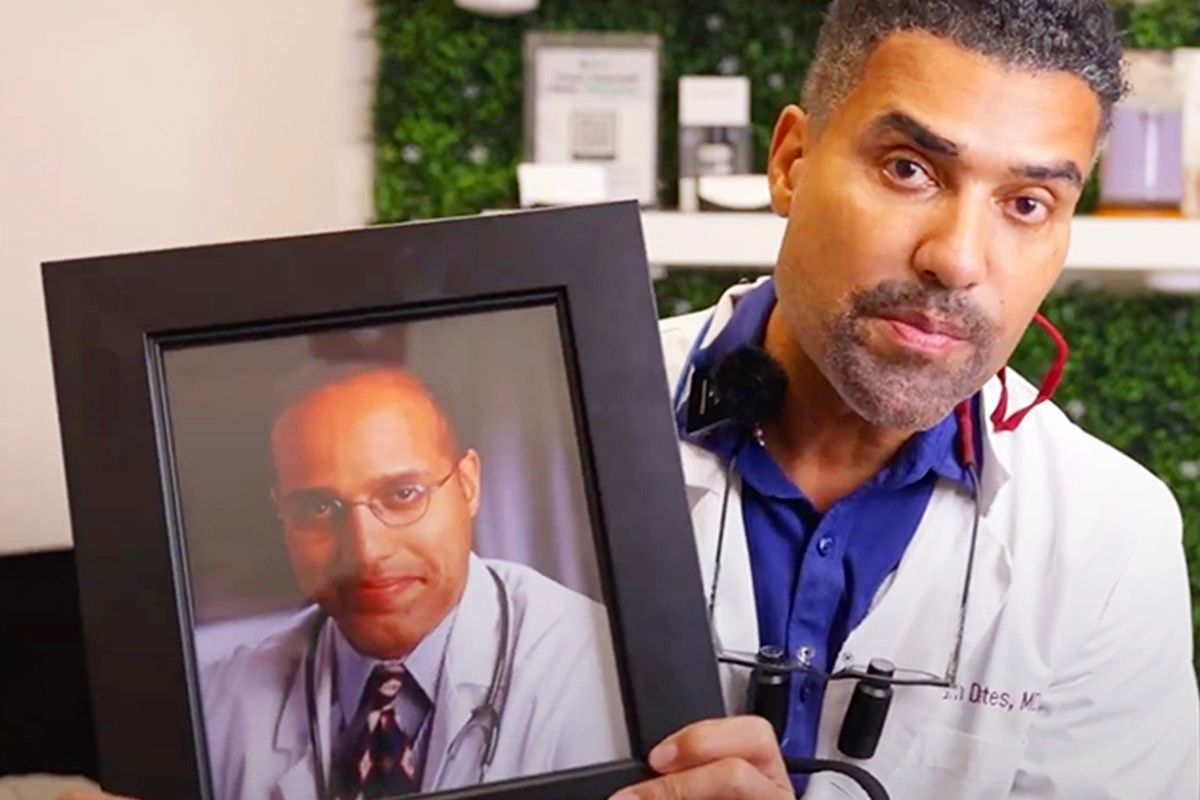
Like many of my patients, I struggled with hair loss for years. My hair began thinning in high school, and by my 20s, my confidence was at an all-time low. I tried every vitamin and hair loss remedy, and spent countless hours trying to mask my baldness, feeling self-conscious in both personal and professional settings. It wasn’t until my late 30s that I finally took action. After undergoing a successful hair restoration procedure, my life changed dramatically. Within 8 to 12 months, my hair grew back, and with it, my confidence soared. I looked 10 years younger, and I no longer had to rely on time-consuming styling tricks. People treated me differently, and I felt like the best version of myself. That transformation led me to make a major career shift—from a successful Trauma and Cancer Surgeon to a full-time hair restoration specialist. I was double board-certified by the American Board of Surgery in Trauma Surgery & Critical Care Surgery and thriving in my field, but my personal experience with hair loss gave me a new mission. I knew firsthand the emotional toll it takes, and I wanted to help others regain not just their hair, but their self-esteem and quality of life. I initially worked for a large corporate hair restoration group but quickly realized that the best results come from a physician-led practice—where the doctor is personally invested in every patient’s success. That’s why I founded Yates Hair Science Group. We specialize in advanced FUE hair restoration and cutting-edge biologic treatments to achieve the best possible results. Unlike many clinics, I personally perform every procedure—never delegating to technicians or nurses—because hair restoration is both a science and an art. Every patient I treat, whether through surgical or non-surgical solutions, I connect with on a personal level—because I’ve lived their journey. I believe a specialty as life-changing as hair restoration should never be driven by corporate interests focused solely on profit. If you're struggling with hair loss, I understand what you’re going through because I’ve been there myself. Let’s work together to find the right solution for you. Schedule a consultation today and take the first step toward restoring your hair—and your confidence.

The public should be aware of an alarming issue within the Chicago area hair restoration industry: unlicensed individuals posing as licensed physicians and performing medical procedures. This deceptive practice jeopardizes patient safety and erodes trust in qualified medical professionals. Recent reports have uncovered that patients seeking treatment at the International Hair Institute (IHI) were led to believe that their procedures were performed by Jing Liu, MD, CEO of the clinic. Upon investigation, it became evident that while Ms. Liu obtained a medical degree in China, she has neither undergone the necessary training nor acquired licensure to practice medicine in the United States. Previously employed as a lab assistant at Northwestern Hospital, she is not listed with the Illinois Department of Financial and Professional Regulation (IDFPR) as a licensed physician. Despite this, Ms. Liu is reportedly presenting herself as an American-licensed physician and performing hair restoration surgeries at IHI. In response to inquiries from discerning patients, Ms. Liu has allegedly claimed the clinic is overseen by a licensed internist, Dr. Wang, who has no known expertise in hair restoration and may not even be present onsite. This deceptive behavior not only endangers patients but also undermines the integrity of the medical profession. Unlike hospital settings—where physicians undergo rigorous vetting and credential verification to ensure they can practice their specialty safely, competently, and ethically—some hair restoration clinics operate with little to no oversight. Many patients remain unaware of the complexity and skill required for hair transplant surgery. As a former board-certified general, cancer, and trauma surgeon, I can attest that hair transplant surgery demands both mental and physical dexterity, as well as extensive training and experience, to achieve safe and excellent outcomes. Illinois law mandates that only a licensed physician may perform procedures involving incisions in the skin. In hair transplant surgery, these include FUT (follicular unit transplantation) linear scalp incisions, FUE (follicular unit extraction) punch graft harvesting, and recipient site creation for follicular grafts. Despite these clear legal guidelines, it appears that many clinics delegate these critical tasks to unqualified medical assistants or non-physician staff, putting patients at unnecessary risk. Such practices insult physicians who have undergone years of rigorous training in accredited medical schools, residency programs, and fellowships. The lack of enforced regulations in the hair restoration industry has enabled this brazen disregard for medical standards to persist. Without proper oversight and accountability, the situation will likely worsen, leaving more patients vulnerable to substandard and unsafe care. This is an urgent call for increased regulatory enforcement and public awareness to protect patients and restore trust in the medical profession.
